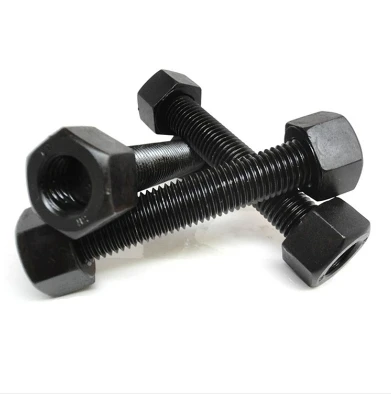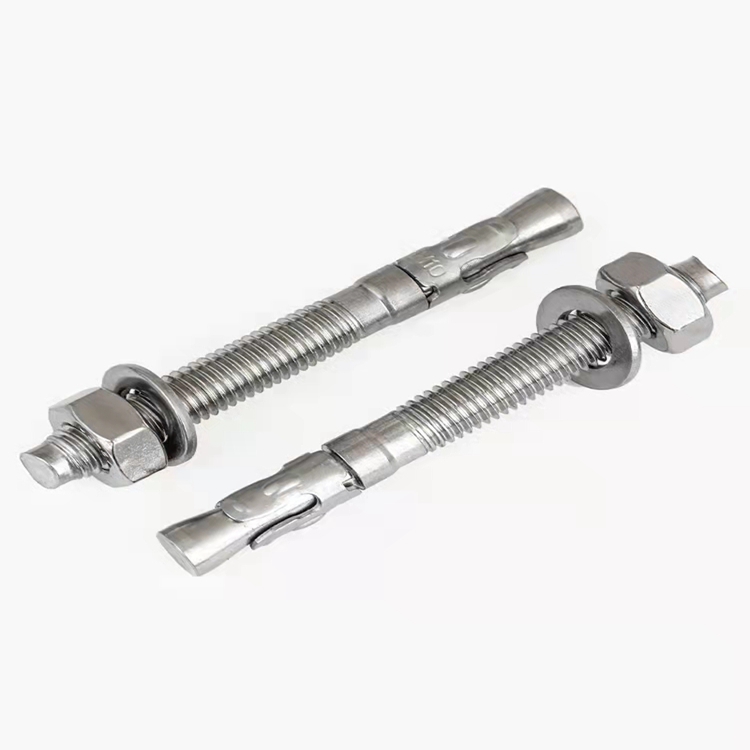stud bolt
जानेवारी . 09, 2025 12:38 Back to list
stud bolt
Stud bolts are a crucial component in various industrial applications due to their unique design and functionality. They are commonly used in situations requiring a high-level of strength and durability, such as in the petrochemical industry, construction, and machinery. Understanding the intricate details of stud bolts can significantly enhance their effectiveness and ensure optimal performance in their respective applications.
From an engineering perspective, the pre-tightening of stud bolts is another vital process to ensure joint integrity. Properly pre-tightened bolts ensure that joint components hold together under extreme pressure, reducing the risk of leakages and extending the lifespan of the connection. Engineers often rely on tools such as hydraulic tensioners to achieve the precise tension required. Installing stud bolts demands a holistic understanding of the application environment, necessary torque levels, and maintenance conditions. Consistent inspection and maintenance are suggested practices to ensure their longevity and reliability. Regular inspection can identify wear and tear or alignment issues before they become significant problems, offering an opportunity for timely replacement or adjustment. In summary, stud bolts are indispensable components in sectors demanding high integrity and reliability from fasteners. Through an understanding of material properties, industry standards, and the installation process, one can assure the optimal performance of stud bolts. For professionals and industries alike, investing time in understanding the nuances and applications of stud bolts will yield benefits in safety, performance, and cost-effectiveness.


From an engineering perspective, the pre-tightening of stud bolts is another vital process to ensure joint integrity. Properly pre-tightened bolts ensure that joint components hold together under extreme pressure, reducing the risk of leakages and extending the lifespan of the connection. Engineers often rely on tools such as hydraulic tensioners to achieve the precise tension required. Installing stud bolts demands a holistic understanding of the application environment, necessary torque levels, and maintenance conditions. Consistent inspection and maintenance are suggested practices to ensure their longevity and reliability. Regular inspection can identify wear and tear or alignment issues before they become significant problems, offering an opportunity for timely replacement or adjustment. In summary, stud bolts are indispensable components in sectors demanding high integrity and reliability from fasteners. Through an understanding of material properties, industry standards, and the installation process, one can assure the optimal performance of stud bolts. For professionals and industries alike, investing time in understanding the nuances and applications of stud bolts will yield benefits in safety, performance, and cost-effectiveness.
Next:
Latest news
-
Reliable Axle Nuts Supplier | High-Quality Automotive Parts
NewsAug.19,2025
-
Premium Wire Bolts Suppliers | Durable & Reliable Fasteners
NewsAug.18,2025
-
Leading Metric Wood Screw Companies & Manufacturers
NewsAug.17,2025
-
Top Wire Bolts Suppliers - Quality & Durable Fasteners
NewsAug.15,2025
-
Trusted Wire Bolts Company | Quality Fasteners Supplier
NewsAug.14,2025
-
Reliable Wire Bolts Suppliers & Manufacturers for Global Needs
NewsAug.13,2025
